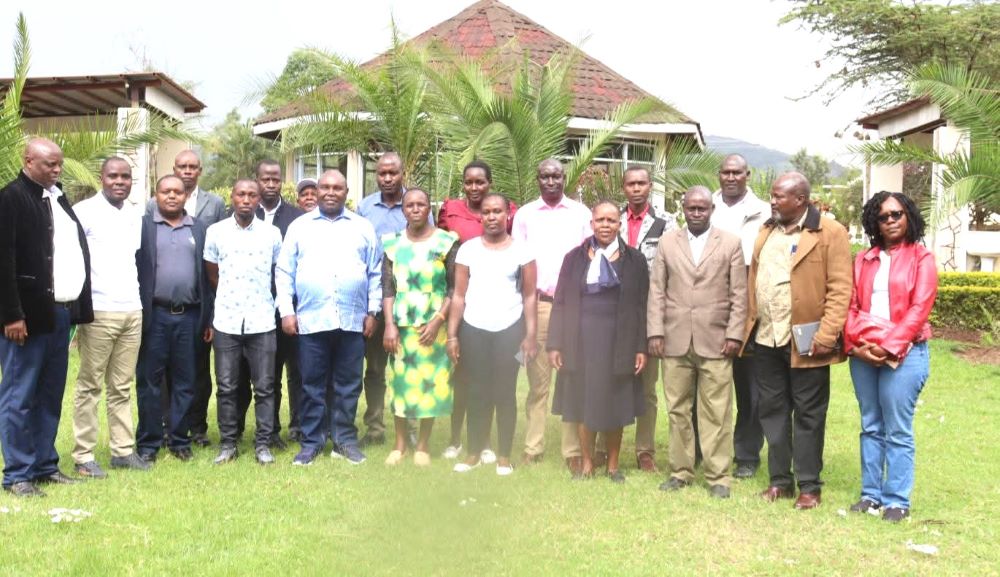By George Jakoyo
The Kenya Institute Curriculum Development (KICD), the body charged with deciding what is taught in the nation’s schools and middle-level colleges has once again raised the issue of teaching vernacular in lower primary.
They present this idea to the public as among the innovations that comprise the competency based curriculum (CBC), otherwise going by the name 2-6-6-3 system. (CBC) is replacing the 8-4-4 system and its implementation has begun in earnest at the elementary level.
Two years ago the Principal Secretary of Basic Education, Dr. Belio Kipsang came out as a very vocal defender of Mother Tongue teaching.
He even issued threats to primary school heads whose institutions were not implementing this policy.
His sentimental campaigns ended just as that. The status quo remained.
I don’t know what has changed at the KICD. Dr Julius Ouma Jwan, I hope, is still the boss. KICD develops the curriculum and teachers mostly employed by the Teachers Service Commission take charge of interpreting and teaching the laid down syllabi.
I wonder how many primary school teachers are interested in teaching Mother Tongue.
Furthermore I wonder who among the generation of young teachers can command mastery of a vernacular with their weakness of knowing just a bit of linguistic items from several languages.
Anyway that is not the subject of this article: my noble duty is to support the Government’s position to promote the teaching and learning of indigenous Kenyan languages.
Language is a carrier of culture and by extension indigenous knowledge .The two are valuable intangible resources no serious society can afford to lose.
The nations we consider civilised do not strain their youngsters with learning borrowed languages. Civilisation and industrialisation have a lot to do with addressing local problems. Youngsters need languages that will enable them understand their immediate environment.
Those associated with great innovations are the thinkers. These people are the champions who lead in coming up with new ideas. It is easier to use the language of the immediate environment to come up with new ideas. It is easier to use the language of the immediate environment to solve problems of that area.
Societies which tackle their problems without looking yonder have used languages of their own. Stretching from the USA, Britain, France, German, Russia, Japan to China, one finds a population that strengthens the teaching and learning of the local languages.
Prof Okoth Okombo argues: “By transferring knowledge and skills in African languages, we are able to survive in our contexts and conceptualise and express our own.”
In his view, African languages are core to the resolution of our human development crisis.
In rural areas where most schools enroll pupils who speak a common tongue, learning vernacular in lower classes may boost learning readiness. Mother Tongues can be used to the extent necessary to allow pupils to “adjust to schools”. In addition, it can assist learners to master subject matter until their skill in English is developed to the point that it alone can be used as a medium of instruction.
It is unfortunate that some Kenyans whose children should benefit from this policy fight it instead. They wrongfully argue that if children are taught Mother Tongue they will lag behind in class work. To such parents, I can only refer them to a body of linguistics research. It has been discovered there is a link between mastering the language of the immediate environment and the learning of the second language (in the Kenyan case either English or Kiswahili or both).
Our best authors starting with the well-known Ngugi wa Thiongo are experts in the use of vernacular. He writes in Gikuyu, Kiswahili and English and above all he is a scholar par excellence. Grace Ogot has literary works in both English and Dholuo.
Most local politicians are fluent in Mother Tongue, Kiswahili and English. Some of them are products of elite private academies and top-notch international universities. If at all your child cannot learn vernacular in school, be the teacher at home. This applies to parents in urban areas. Experts in this field concur that below the age of 15, it is possible to learn and use as many languages as possible.
It is my proposal that Mother Tongues should be taught even outside the formal school system. Maybe we set up language learning centres in some constituencies so that those non-locals who are interested are accorded opportunities to learn the languages of the areas where they work, do business or reside. A German working in Britain attends classes at the British Council while the British counterpart in Germany has the Goethe Institute for German lessons.
Professor Abdulaziz and Prof Karega Mutahi, whose extensive studies have been on many areas of Kenyan languages acknowledge that there are three languages for most local children; English, Kiswahili and Mother Tongue. To deny a child an opportunity to access the third language is akin to trampling on the constitutional right of a child.
A language that is losing speakers risks dying. As noted earlier, a society’s language carries a lot of knowledge which is needed to be preserved for future generations.
If a community is not interested in their language, they can negotiate with a neighbour to preserve and teach it. A language can also be taught in a Language School. Let the government come up with policies and incentives that can encourage Kenyans to learn the languages of each other so that they interact and understand each other more.
Lastly, I would wish to debunk the myth that national languages promote integration of Kenyan communities. From research, knowledge of languages of other communities may cement Kenyans more.
The KICD must entrench the learning of local languages in and out of school.
The author is a teacher and researches on education and social issues.





